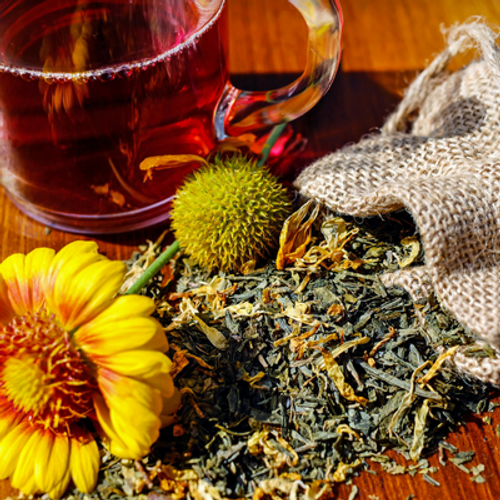Why We Don't Prescribe
Posted by 1st Chinese Herbs on Aug 15th 2018
Have you noticed that we don't use the words like "cure" or "treatment" or "treatments that cure your condition" on our website? We're very precise with our language for a good reason. 1st Chinese Herbs is a retail store and not your doctor or acupuncturist's office. Since we aren't doctors, it would be extremely unethical for us to say "yes, this cures x, y, or z." You will find that on all our listings, we recommend you consult with your doctor or healthcare professional before use and we honestly support this. A doctor can see you, perform a check up, and talk to you in depth about allergies and reactions with any medication you are on. Herbs can interact with certain conditions and people in unexpected ways--your doctor would know you and your medical history best. Always talk with them before you use any new herbs. This is the safest and most effective way to use herbs. We want you to get the right herb the first time to help your body to heal.
A very important thing about herbs to keep in mind related to this is that different herbs work differently in different bodies. What works for your uncle's cousin's teacher's daughter's tutor's band mate may not work just the same for you. Friends might swear up and down about how this one herb was a cure-all for their ails, but your body is not your friend's body. Age, weight, and other conditions can really impact how an herb works, so it's best not to assume that someone's perfect herb will also be your perfect herb. We see things like this in other places all the time. For many people, coffee (and caffeine in general) will give them a boost of energy and alertness, but for a piece of the population, the same brew makes them very drowsy and tired. Or worse yet, the same coffee can give other people headaches, stomach pain, and swelling of the joints. Different bodies, totally different reactions!

You may see that some of our herbs do note some cautions--these are often well known reactions or precautions one should take, but it is best to talk with your doctor, acupuncturist, or healthcare professional about this first. They can answer your questions in far more depth. If you are someone who is already familiar with traditional Chinese medicine (TCM) terminology, you'll find much of that information is already on our website, like our section on Categories of Chinese Herbs and also the properties of herbs listed on all herbs typically used in TCM practices.
If you're just curious and want to learn more, there is plenty of information on websites kept by experts in TCM. There are a lot of books on the subject. Some we recommend are "Herbal Medicine Maker's Handbook," "Medicinal Herbs: A Beginner's Guide," and "The Country Almanac of Home Remedies." If you're more of a hands-on learner, see if any local herbal groups meet up in your community. You can find groups like this often through social media websites like Facebook. Some colleges have classes on medicinal herbs and acupuncture. Our local college has a student club focused on herbs!
Take control of your health and life choices to use the herbs that help you and your body the most. Always use caution and speak with the healthcare professional in your life before adding any herbs to your routine. Even though we can't prescribe herbs, we can help you find articles about herbs and give you structure function sentences. We always do everything on our power to ensure our customers find the information they need to make those empowered decisions.



